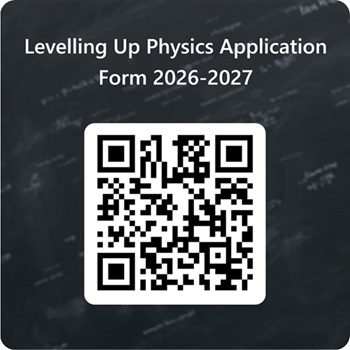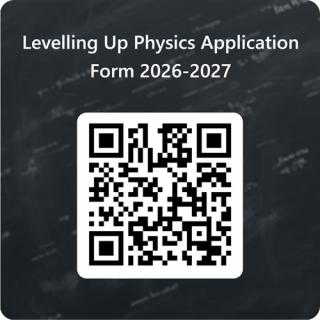

QR Code
Scan the QR code to fill in Levelling Up Physics application Form 2026-2027
We work closely with schools, colleges, and community groups to bring physics to life through hands-on workshops, inspiring talks, live demonstrations, and mentoring. Our goal is to show that physics is not just about equations—it’s a creative, human pursuit that helps us understand the world and shape the future. Whether we’re exploring the structure of the universe, demonstrating how light enables modern technologies, or opening up our research labs to the public, we aim to make science engaging, inclusive, and relevant.
A central aim of our work is to encourage more young people to study A Level Physics, particularly those from groups underrepresented in science. We focus on students who may have the potential but not the confidence, support, or role models to see themselves as scientists. We want them to know: physics needs your perspective, and your future in science can start here.
But our ambition goes beyond recruitment. We also seek to inspire a lifelong interest in physics among the wider public, inviting people of all ages to explore big questions—from black holes and quantum particles to climate modelling and next-generation communications. We showcase the world-leading research happening right here at Southampton, opening windows into the work of our scientists and the real-world impact of their discoveries.
As proud members of the the South-East Physics Network, we contribute to a regional effort to grow physics participation, support physics teaching, and enhance public understanding of science. Our engagement has both local and global reach, from hands-on activities in Hampshire schools and libraries to inclusive astronomy collaborations with vision-impaired students in South America.
For us, public engagement isn’t just about delivering information—it’s about building relationships, listening to communities, and shaping our work around what matters to people.
Our Goals
- Inspire more students to choose A Level Physics, especially those who may not currently see science as “for them.”
- Share the wonder of physics with the public, connecting our research to everyday life and global challenges.
- Support teachers and schools by providing resources, visits, and links to cutting-edge research.
- Develop our students and staff as confident, creative communicators who can share their passion for science.
- Collaborate with educators, artists, industry and communities to reach wider and more diverse audiences.
If you're a teacher, student, youth leader, community organiser—or simply curious about physics—we’d love to hear from you. Together, we can explore the universe, and help more people discover where physics can take them.